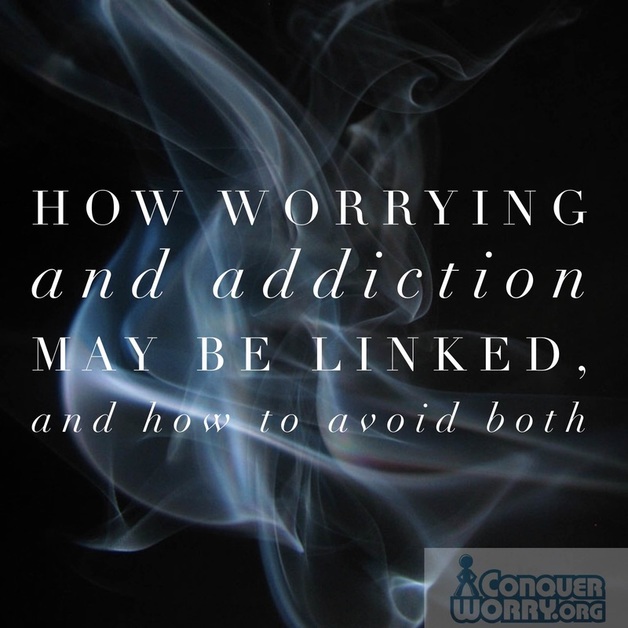|
Worry, anxiety, and addiction are often interwoven. For some people, it’s constant pressure and increasing anxiety that serve as the catalyst to developing an addiction. For others it works in the opposite way: having an addiction creates stress and anxiety – be it fear of disappointing loved ones, legal consequences, or a tough path of recovery. The key to successful recovery is learning how to cope with underlying mental health problems and the addiction itself. Worrying and Addiction Worry and addiction are cyclical in their relationship to each other. Individuals who suffer from chronic worry often experience physical discomfort such as sweating and rapid heartbeat. There is also the emotional discomfort such as feelings of fear and panic. Those suffering from anxiety may turn to addictive behaviors as a way to self-medicate and escape. On the flip side, the need to get a "fix" from an addiction creates anxiety, so it becomes a self-perpetuating cycle. A person suffering from addiction may become so focused on the euphoria they experience that they may constantly worry about how, when, and where they’ll be able to obtain their drug of choice. This is not limited to just drug abuse. In addition to drugs and alcohol, other behaviors such as spending, eating, sexual activity, cleaning, or even exercise are potential addictions for some people when the behaviors become excessive and uncontrollable. Raising your awareness about worry and anxiety, as well as your personal triggers, can help you break the vicious cycle of worry, anxiety, and addiction. Image via Pixabay by AdinaVoicu Raising Awareness about the Risks of Excessive Worry Experiencing concern about various situations in your life is normal and healthy. Excessive worrying, however, leads to anxiety. Learning to identify your triggers and acknowledging situations in which cannot cope can help you make healthier choices. Symptoms of excessive worry include:
Recognizing these symptoms is the first step. When you learn to identify triggers, you can turn to alternative coping methods, which can help avoid giving in to your addiction. Coping with Distressing Thoughts and Feelings People who do not constantly experience severe anxiety and worry may think it’s simple to deal with. They may think it’s as simple as forgetting about what has been stressing you, but it is not. There are, however, some strategies you can rely on to help you learn to develop alternative coping mechanisms. Worry is unavoidable, as it can stem from relationships and experiences. It’s a natural state of mind on some occasions, but it doesn’t have to be a destructive force in your life. These tips can help regain control:
Worry will come, but it doesn’t have to perpetuate an addiction, nor is it necessary to be dominated by worry and anxiety while recovering from an addiction. You can take control of your life and improve your sense of well-being. About the Author Sarah Lockwood is a concerned parent and former social worker. Having worked with the public for decades and after watching her own daughter struggle with addiction, Sarah knows all too well the devastation that can be caused by drug and alcohol abuse. Sarah’s daughter is now in recovery, but her experiences with substance abuse inspired Sarah to get involved with ThePreventionCoalition.org. She plans to spread awareness and support through her work for others dealing with addiction. While Sarah devotes a lot of time to the Coalition, she makes sure to relax and enjoy the small things in life, as every day is a gift.
0 Comments
Leave a Reply. |
Build Your Action Based Stress Reduction System
Popular PodcastsOlympian Suzy Favor Hamilton - From Fame to Prostitution to Advocacy
Hall of Fame Basketball Star Chamique Holdsclaw on Mental Resilience Diana Nightingale on her husband Earl Nightingale's Principles for Mental Health Success JoAnn Buttaro on Date Rape & PTSD Survival Story: Its Never Too Late Gabe Howard on BiPolar Advocacy Phil Fulmer on Teen Suicide Prison, Bipolar and Mania with Andy Behrman Columbia Univeristy's Dr. Rynn on OCD Archives
March 2018
Categories
All
|




 RSS Feed
RSS Feed





